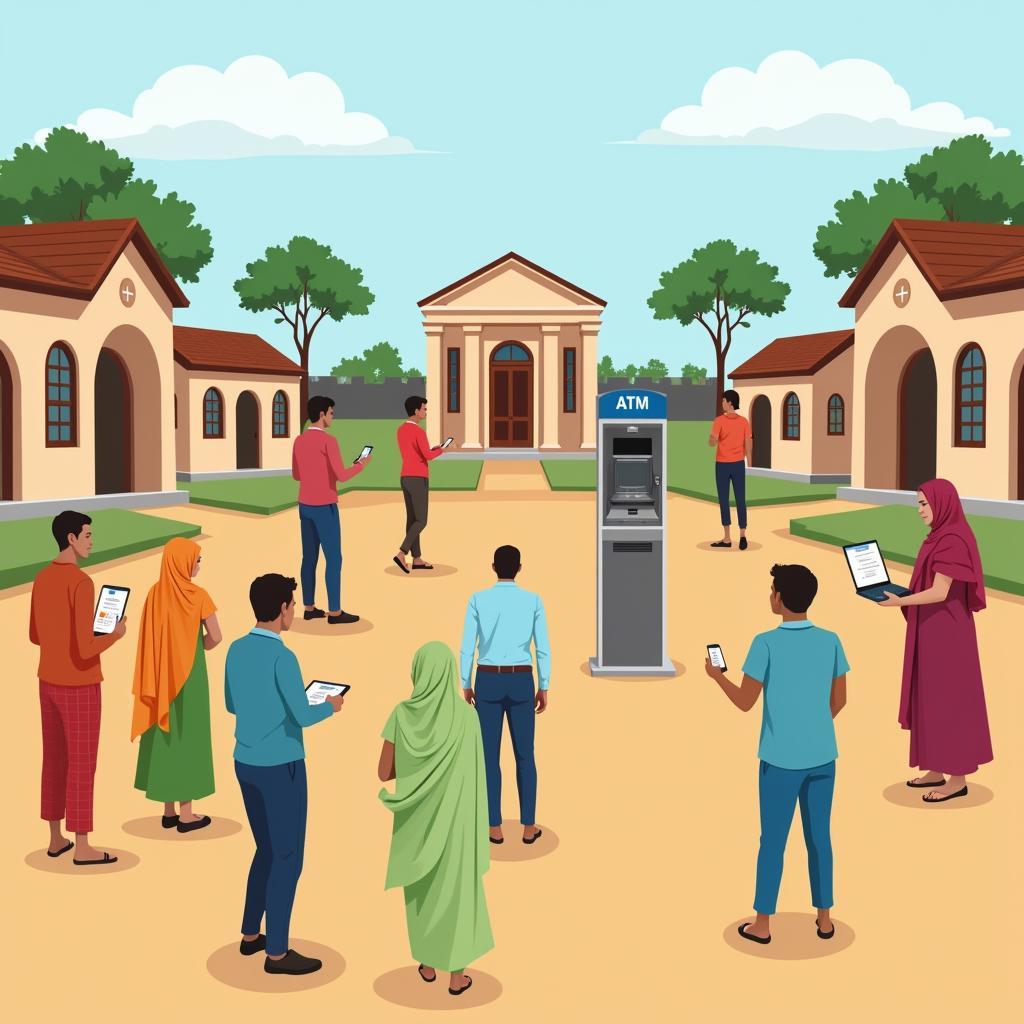Financial technology’s influence on rural banking has become an increasingly common topic in IELTS Writing Task 2, particularly in questions about technological advancement and economic development. Based on our analysis of past IELTS exams, this theme has appeared in various forms, especially in tests conducted across Asia and developing nations where role of fintech in financial inclusion is particularly relevant.

Analyzing the Task 2 Question
Some people believe that financial technology solutions have revolutionized banking services in rural areas, while others argue that traditional banking methods are still more effective. Discuss both views and give your opinion.
This question requires a balanced discussion of both perspectives regarding how financial technology affects rural banking, followed by your personal stance. Let’s examine sample essays at different band levels.
Band 8.5 Sample Essay
In recent years, the debate between digital financial services and conventional banking methods in rural regions has intensified. While both approaches have their merits, I believe that fintech solutions offer more significant advantages for rural communities.
Digital banking technologies have transformed rural financial services in several ways. Firstly, mobile banking applications enable villagers to conduct transactions without traveling long distances to physical bank branches, saving both time and money. Moreover, how peer-to-peer lending changes banking has created new opportunities for rural entrepreneurs to access loans without traditional collateral requirements. These innovations have dramatically improved financial inclusion in remote areas.
However, proponents of traditional banking methods argue that face-to-face interactions provide better security and trust. They contend that many rural residents, particularly elderly individuals, feel more comfortable discussing financial matters in person and may struggle with digital literacy. Furthermore, traditional banks often better understand local economic conditions and can offer personalized solutions based on community needs.
Nevertheless, I firmly believe that fintech solutions represent the future of rural banking. The impact of fintech on global financial inclusion has been remarkable, with digital wallets and mobile money services reaching previously unbanked populations. While traditional banking services shouldn’t be completely eliminated, integrating technological innovations with existing systems would create the most effective solution for rural communities.
In conclusion, although traditional banking methods have their place, the advantages of fintech solutions in terms of accessibility, efficiency, and financial inclusion make them the superior choice for rural banking services.
Band 6.5 Sample Essay
Nowadays, there is a big discussion about whether new banking technology or traditional banks are better for rural areas. In my opinion, both methods have good and bad points, but new technology is more helpful.
First, digital banking helps rural people save time and money. They don’t need to go to bank branches which are often far away. Also, they can send money to family members easily using their phones. Many farmers use digital payments to sell their products and get paid faster.
But some people think old-style banking is safer. Old people in villages don’t know how to use smartphones properly. They feel scared about losing money through online fraud. Traditional banks also give them better advice about their money problems.
However, I think new technology is more useful because it helps more people use banking services. impact of fintech on financial inclusion shows that poor people can now save money and get loans easier than before. Even though there are some problems, these can be solved by teaching people how to use digital banking safely.
In conclusion, while traditional banking has some benefits, I believe new technology is better for rural areas because it makes banking easier and cheaper for everyone.
Key Vocabulary
- Financial technology (n) /faɪˈnænʃəl tekˈnɒlədʒi/ – technology-based financial services
- Digital literacy (n) /ˈdɪdʒɪtl ˈlɪtərəsi/ – ability to use digital technology
- Unbanked (adj) /ʌnˈbæŋkt/ – not having access to banking services
- Collateral (n) /kəˈlætərəl/ – security for loans
- Financial inclusion (n) /faɪˈnænʃəl ɪnˈkluːʒn/ – access to financial services
- Mobile money (n) /ˈməʊbaɪl ˈmʌni/ – financial services through mobile devices
- Digital wallet (n) /ˈdɪdʒɪtl ˈwɒlɪt/ – electronic payment system
- Peer-to-peer lending (n) /pɪə tuː pɪə ˈlendɪŋ/ – direct lending between individuals
For practice, try writing your own essay on this topic and share it in the comments section. Similar topics might include the impact of digital payments on rural economies or the role of mobile banking in developing nations.